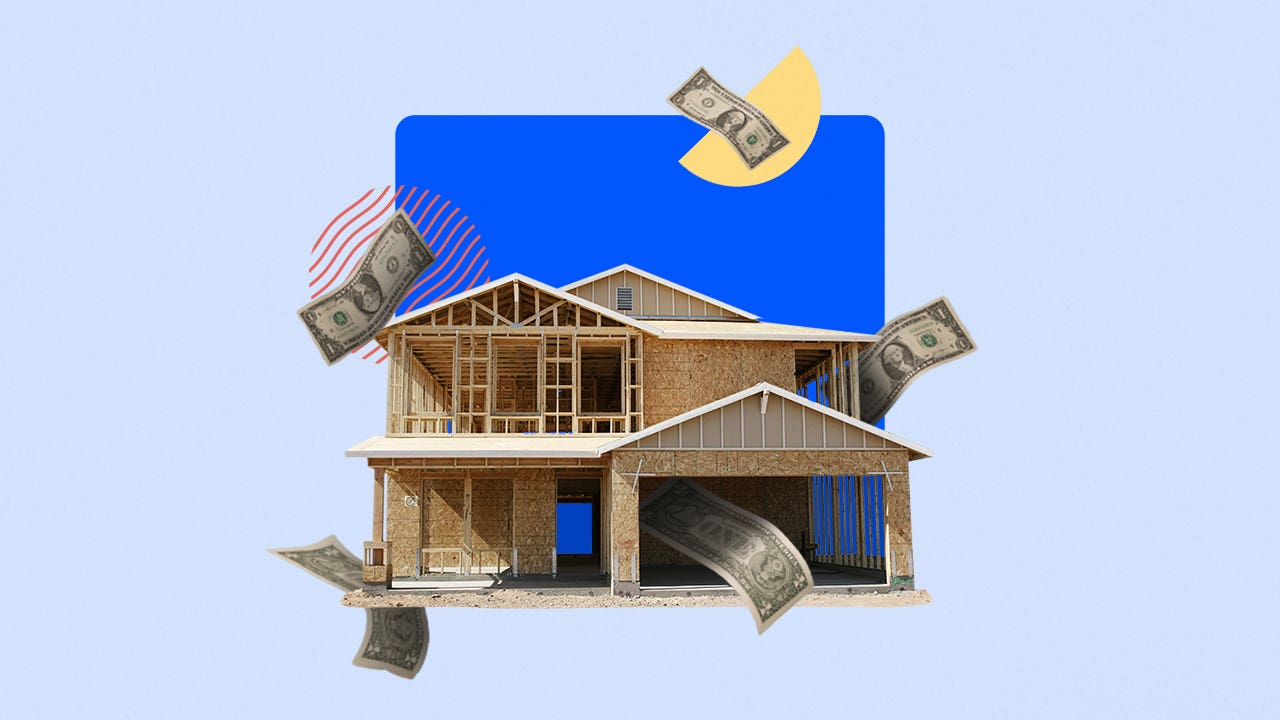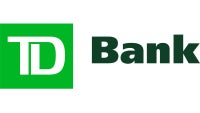Best construction loan lenders in 2025

A construction loan is a short-term, high-interest loan used to finance building a home. Funds are paid out in phases over the course of construction and typically cover land, materials, contractor labor and permits. They tend to have stricter qualification requirements than traditional mortgages, but are available through a wide range of lenders, including large national banks. Here are our picks for the best construction loan lenders in 2025.
Best construction loan lenders
| Lender | Availability | Bankrate Score |
|---|---|---|
| PNC Bank | Alabama, Arizona, California, Colorado, Florida, New Mexico, Tennessee, Texas, and Washington* | 4.8 |
| Wells Fargo | All U.S. states | 4.8 |
| New American Funding | All U.S. states & Washington, D.C. | 4.6 |
| U.S. Bank | All U.S. states | 4.5 |
| First Citizens Bank | All U.S. states except Delaware, Idaho, Indiana, Kentucky, Maine, New Hampshire, North Dakota, Rhode Island, South Dakota, Washington, West Virginia and Wyoming | 4.5 |
| TD Bank | Connecticut, Delaware, Florida, Maine, Maryland, Massachusetts, New Hampshire, New Jersey, New York, North Carolina, Pennsylvania, Rhode Island, South Carolina, Vermont, Virginia and Washington, D.C. | 4.3 |
| Old National Bank | All U.S. states | 4.2 |

PNC Bank
-
- Availability: Alabama, Arizona, California, Colorado, Florida, New Mexico, Tennessee, Texas and Washington*
- Loans offered: Conventional, jumbo, FHA, VA, USDA, construction
- Where to find: Branch locations and online
*The bank or lender offers construction loans in these states only. It might offer other types of mortgages in other states.
-
Pros
- Offers a wide range of mortgage products
- Online and in-person options to apply
- Application can be tracked online
Cons
- Limited mobile app functionality
- Below-average J.D. Power rating for mortgage servicing
- Not available in all states
-
PNC Bank scores well for affordability, availability and borrower experience. The bank’s construction loan is a standard construction-to-permanent loan that begins with interest-only payments, then converts to a mortgage when the build is complete.

Wells Fargo
-
- Availability: All U.S. states
- Loans offered: Conventional, jumbo, FHA, VA, USDA, construction
- Where to find: Branch locations and online
-
Pros
- Offers a program to lock in your rate for six to 12 months while your home is being built
- Massive branch network
- Will consider non-traditional credit references in application process
- Offers low-down payment options to assist lower-income borrowers
Cons
- Dialed back its mortgage offerings
- Below-average customer satisfaction scores and negative past customer reviews
- Does not offer HELOCs or home equity loans
-
Wells Fargo scores well for affordability, availability and borrower experience. The bank’s construction loan includes the option to pay for the “Builder Best Extended Rate Lock,” which keeps your interest rate as-is for the duration of the project, up to 12 months.

New American Funding
-
- Availability: All U.S. states & Washington, D.C.
- Loans offered: Conventional, jumbo, FHA, VA, USDA, construction
- Where to find: Branch locations and online
-
Pros
- Construction loans have flexible credit score requirements and down payment options
- More than 270 branch locations
- Financing initiatives for Latino, Black and LGBTQ+ buyers
Cons
- Lowest advertised rates require paying points and a hefty 40% down payment
- Doesn't disclose lender fees online
-
New American Funding scores well for affordability and availability. The lender’s conventional construction-to-permanent loan has a fixed interest rate, but you can adjust that rate within 30 days of the home’s completion if you so choose. It also only requires 5% down. In addition, the lender offers FHA and VA construction options with potentially more flexible credit and down payment requirements.

U.S. Bank
-
- Availability: All U.S. states
- Loans offered: Conventional, jumbo, FHA, VA, construction
- Where to find: Branch locations and online
-
Pros
- Provides lender credit worth up to $1,000 for qualifying banking customers
- Displays rates online
Cons
- Tougher borrower requirements for FHA loans (640 credit score in most cases)
- No USDA loans
-
U.S. Bank scores well for affordability, availability and borrower experience. The bank’s construction loan options include a construction-to-permament loan that flexes up to 18 months and comes with a fixed or adjustable interest rate, as well as an adjustable-rate lot loan.

First Citizens Bank
-
- Availability: All U.S. states except Delaware, Idaho, Indiana, Kentucky, Maine, New Hampshire, North Dakota, Rhode Island, South Dakota, Washington, West Virginia and Wyoming
- Loans offered: Conventional, jumbo, FHA, VA, USDA, construction loans
- Where to find: Branch locations and online
-
Pros
- Wide variety of loan options, including medical professional mortgages
- Remote notarization and closing services
- Down payment assistance available to qualifying borrowers
Cons
- Online prequalifications available, not preapprovals
- Construction loan can't be used for investment properties
- Advertised rate requires a credit score of 740 (on the high side) and a debt-to-income ratio of 38% (on the low side)
-
First Citizens Bank scores well for affordability and availability. The bank’s construction-to-permanent loan rates were competitive as of this writing, and the loan allows you to finance up to $3 million with a fixed or adjustable interest rate.

TD Bank
-
- Availability: Connecticut, Delaware, Florida, Maine, Maryland, Massachusetts, New Hampshire, New Jersey, New York, North Carolina, Pennsylvania, Rhode Island, South Carolina, Vermont, Virginia and Washington, D.C.
- Loans offered: Conventional, jumbo, FHA, VA, USDA, construction
- Where to find: Branch locations and online
-
Pros
- Easy-to-use online rate estimate tool
- Wide range of loan programs, including low-down payment options
- First-time homeowner assistance in the form of lender credits and grants
Cons
- Only available to borrowers in 15 states and Washington, D.C.
- Charges an origination fee
- Doesn't offer construction financing for co-ops or condos
-
TD Bank scores well for affordability and borrower experience. The bank’s construction-to-permanent loan offers a fixed or adjustable interest rate and starts with interest-only payments. Borrowers can apply construction-related expenses, such as permits, to the 20% down payment requirement. You will also need at least 20% equity in your home.

Old National Bank
-
- Availability: All U.S. states
- Loans offered: Conventional, jumbo, FHA, VA, USDA, construction
- Where to find: Branch locations and online
-
Pros
- Construction loan amounts up to $1 million
- Branches plus online banking
- First-time homebuyer and down payment/closing cost assistance programs in some states
- Special loan programs for first respondents, professors and physicians
Cons
- Branch locations limited to eight states
- Finance charges include $1,350 origination fee. Additional closing costs apply.
- Advertised rates assume a credit score of 700 or higher and at least a 20% down payment
-
Old National Bank scores well for affordability and availability. Its construction-to-permanent loan comes with a term up to two years at a fixed or adjustable interest rate, and with no mortgage insurance requirement.
How to apply for a construction loan
Applying for a construction loan is similar to applying for a mortgage on an existing home, with a few extra steps and likely a longer timeline. Here are the basic steps:
1. Review construction loan requirements
To qualify for a construction loan, you’ll need to meet the lender’s requirements. These include:
- Credit score: Many lenders require a credit score of 680 or higher for a construction loan, but some might work with borrowers with lower credit scores.
- Debt-to-income (DTI) ratio: Lenders usually look for your debt obligations to total no more than 45% of your monthly income.
- Down payment: Be prepared to put down 20% or more, unless you’re applying for an FHA or VA construction loan.
- Construction plan: Lenders usually require a detailed plan before funding the first phase of the project.
- Repayment plan: In addition to the construction loan itself, you must also qualify for permanent mortgage financing. Most construction loans convert to a permanent mortgage upon completion of the home.
2. Shop around for lenders and rates
Not all mortgage lenders offer construction loans, so you might have to expand your search to uncover options. Banks tend to offer them more so than credit unions or online lenders, so it might make sense to start there. Some banks may also offer discounted rates or preferred pricing if you have a personal or business relationship with them.
3. Submit paperwork
Once you connect with a lender and determine your eligibility, submit your loan application, along with the contractor agreement and plans from your architect or builder. The lender not only wants to know the cost of the build, but also the scope of the work and timeline.
As the lender underwrites your application, be prepared to answer any questions or provide additional documentation as needed. Staying responsive throughout the process will help you avoid closing delays and get the funds to your contractor as soon as possible.
Types of construction loans
- Construction-to-permanent loan: A loan to pay for construction costs, which then converts to a permanent mortgage once the home’s finished and ready for occupancy
- Construction-only loan: A loan to pay for construction costs by disbursing funds in increments as project milestones are met; generally has a repayment period of one year or less
- Owner-builder construction loan: A loan that operates like a construction-to-permanent or construction-only loan, but with one key difference: the borrower is also the builder
- End loan: The mortgage on the property once construction is complete
Frequently asked questions
-
A construction loan is a short-term loan designed to help with the purchase of a plot of land and the construction of a home, or pay for major renovations to an existing home. Renovation loans, on the other hand, pay for home improvements. This funding can come in a variety of forms, such as a personal loan or a government-backed loan, or by taking out equity in your home. Renovation loans aren’t as structured as construction loans; they’re usually unsecured, and borrowers have more options when it comes to accessing funds.
-
Construction loan interest rates are generally higher than the mortgage rates for standard home purchases, in part because in a build situation, there’s no home (yet) to secure the construction loan against, making it riskier for the lender.
-
For any type of mortgage, you’ll need to qualify based on the lender’s requirements. In that sense, a construction loan is no harder to get than a traditional mortgage, provided you qualify. The process of applying for a construction loan, however, might be more difficult than your average homebuying mortgage, because you’ll need to provide more paperwork about the build and contractor, as well as follow the lender’s requirements in terms of timeline, inspections and payouts.
-
To determine the best construction loan lenders, Bankrate periodically evaluates more than 75 lenders for factors relating to affordability, availability and borrower experience, assigning each a Bankrate Score out of five stars. The best construction loan lenders generally have a Bankrate Score of 4.5 stars or higher. Learn more about our methodology.
Why we ask for feedback Your feedback helps us improve our content and services. It takes less than a minute to complete.
Your responses are anonymous and will only be used for improving our website.
You may also like


Best jumbo mortgage lenders in 2026

Best FHA mortgage lenders in 2025





